Managing Acne with Healthy Eating
Food and Acne
Acne and your diet have a relationship. And it is worth understanding why acne develops in the first place and how food is linked to this.

What is Acne?
Acne is a common skin problem causing pimples, blackheads, and whiteheads to form on the surface of the skin. It develops when oil glands on the skin produce too much oil and become clogged with bacteria and dead skin cells. These clogged pores cause inflammation, swelling and are sometimes painful leading to the outbreak of acne. It is rarely harmful, but can cause emotional distress and can scar the skin.
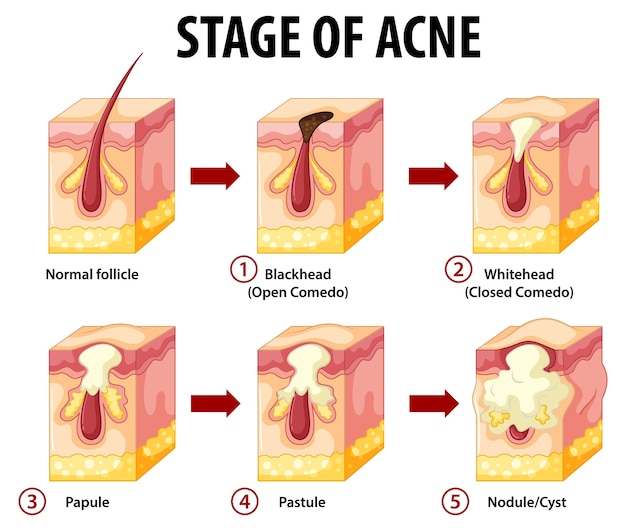
Acne is very common in teenagers going through puberty as they are often triggered by hormonal changes in the body.
Why does acne develop?
A combination of factors are responsible for causing acne:
How does diet affect the skin?
Several studies have concluded that the food you eat plays a significant role in the health and appearance of your skin.
Certain foods with a high glycaemic index (GI) like refined carbohydrates, dairy products, and white sugar raise your blood sugar more quickly than others. A spike in blood sugar causes the body to release a hormone called insulin. Having excess insulin in your blood can cause your oil glands to produce more oil and a greater chance of inflammation both contributing to the outbreak of acne.
Which nutrients will help my acne-prone skin?
A diet low in Glycaemic Index.
Food with a high glycaemic index causes an increase in insulin levels which leads to acne development. Opt for foods with medium to low GI that will release sugar more slowly (e.g. pulses, beans and lentils and whole grains, certain fruit and vegetables).
Eating more Omega-3 fatty acids
Omega-3 fatty acids have anti-inflammatory properties which reduce inflammation in the body thus decreasing the risk of acne. A key source of Omega-3 is fish oil which is known to be beneficial for the skin.
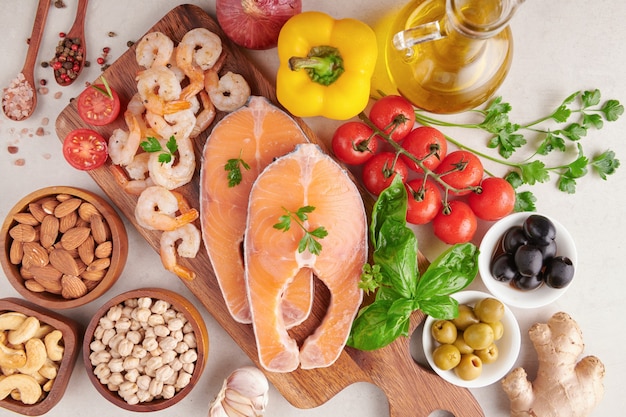
Ensure your body gets enough antioxidants.
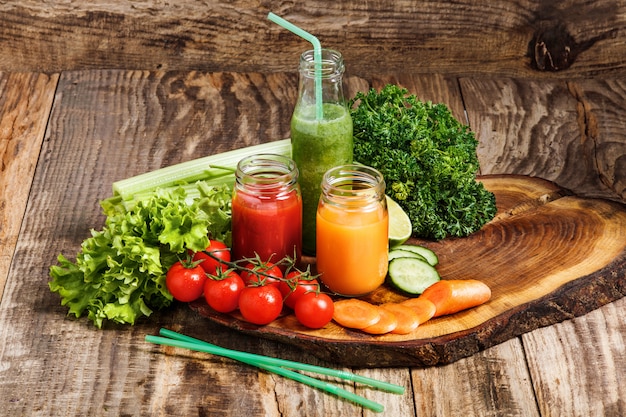
Free radicals in the body contribute to the inflammation that aids in the development of acne, whereas antioxidants work to combat their negative effects. Some of the most important antioxidants are vitamin E, vitamin C, and vitamin A, zinc, and selenium.
Top up on Zinc and Selenium
Zinc has bacteriostatic, antioxidant, and anti-inflammatory properties which reduce the production of inflammation. Studies also suggest that eating foods rich in zinc may be useful in preventing and treating acne.
Selenium regulates sebum production (oil in the skin) has anti-inflammatory and antioxidant properties and is used in the treatment of acne.
Probiotics, Hub of good bacterias
Probiotics which are gut-friendly microorganisms promote a healthy gut and balanced microbiome, which is linked to reduced inflammation and a lower risk of acne development.
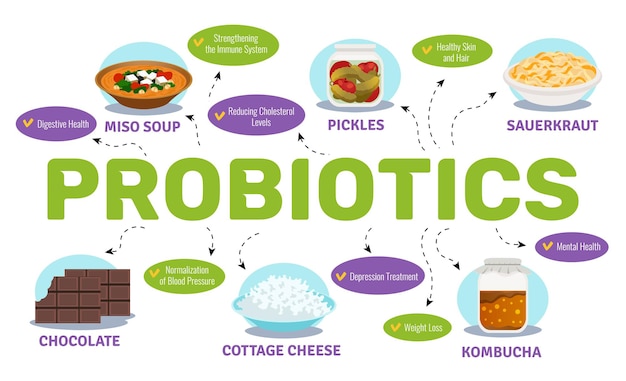
Spices to the rescue
Spices such as ginger, turmeric, cinnamon, and fresh herbs such as basil, oregano, and garlic have anti-inflammatory, anti-microbial, and immune-boosting properties. They also help to regulate blood sugar, improve insulin sensitivity, which may reduce acne.
What foods should I avoid to help my acne-prone skin?
Reduce dairy intake.
Dairy foods like milk, butter, yoghurt, cream, and cheese increases hormone levels, cause a spike in insulin and increase inflammation – all factors that lead to acne outcomes. Try dairy-free products such as sugar-free soy and almond milk as alternatives.
Cut down on processed foods.
Usually consisting of high sugar, high salt or high saturated fats (e.g. pastries, cookies, French fries, burgers, pizza, etc.) can knock off balance the hormones, blood sugar levels, causing a spike in insulin levels and promoting inflammation. Cue to acne. Try a healthier version of your favorite fast food.
Chocolate, Eat wisely.
Chocolate is high in sugar content which can trigger acne if not controlled. Choose dark chocolate which has high cocoa content. The cocoa in chocolate is a rich source of antioxidants such as vitamins A, C, E, and zinc which prevent inflammation and is highly beneficial for your skin.
The Takeaway
Acne is a common skin problem one endures while growing up. It is important to realize that food is not always the enemy here, but also the solution. The goal is: to eat healthy, choosing foods that combat the development of acne through its antibacterial, anti-inflammatory, and protective effects. A healthy diet plan which includes lots of fresh green vegetables and fruits, whole grains, and plenty of water can be a real boon to your skin and overall health.
Recipe
Beet Carrot Salad (serves 2)
Healthy, flavoursome, and with the right dose of all skin healthy nutrients including antioxidants and healthy fats!
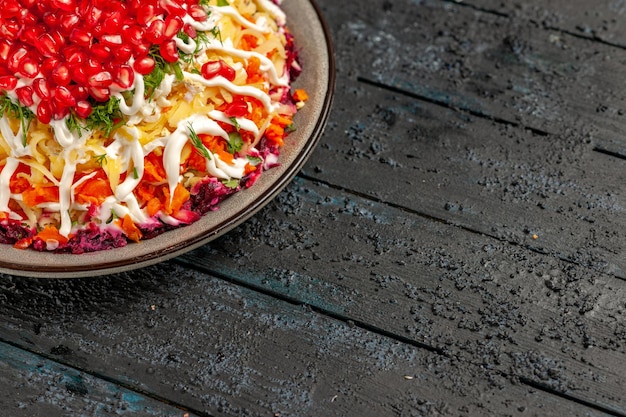
Ingredients
½ cup raw beets, peeled and grated
½ cup organic carrots, grated
2 tbsp. apple juice
1 tbsp. extra-virgin olive oil
1 tsp fresh ginger, minced
A pinch of sea salt
A handful of chopped walnuts
Method
Combine grated beets and carrots in a small bowl.
Mix the seasonings in a separate bowl and drizzle over the salad mixture.
Sprinkle the chopped walnuts. Toss gently.
Serve immediately
Comments
Post a Comment